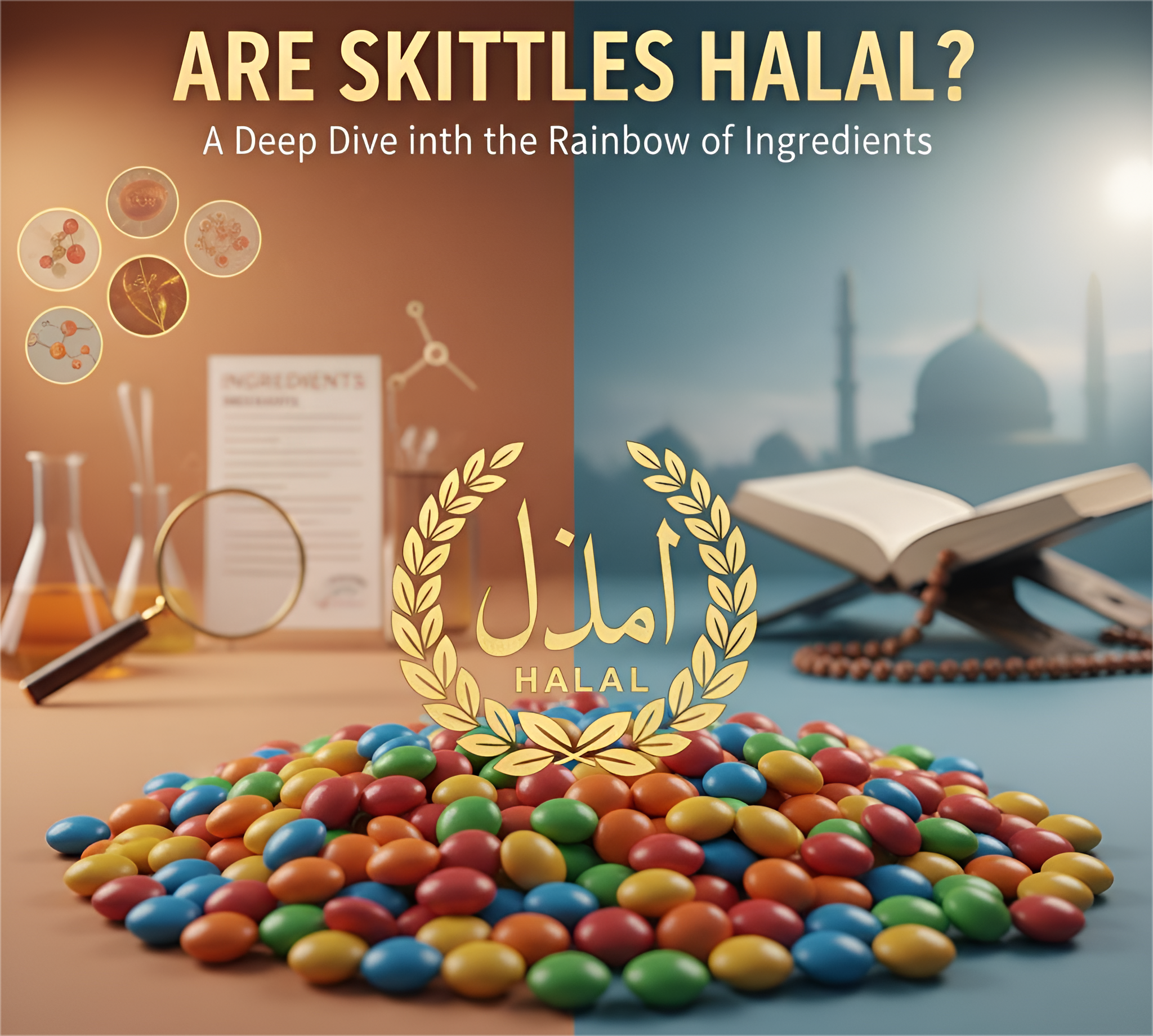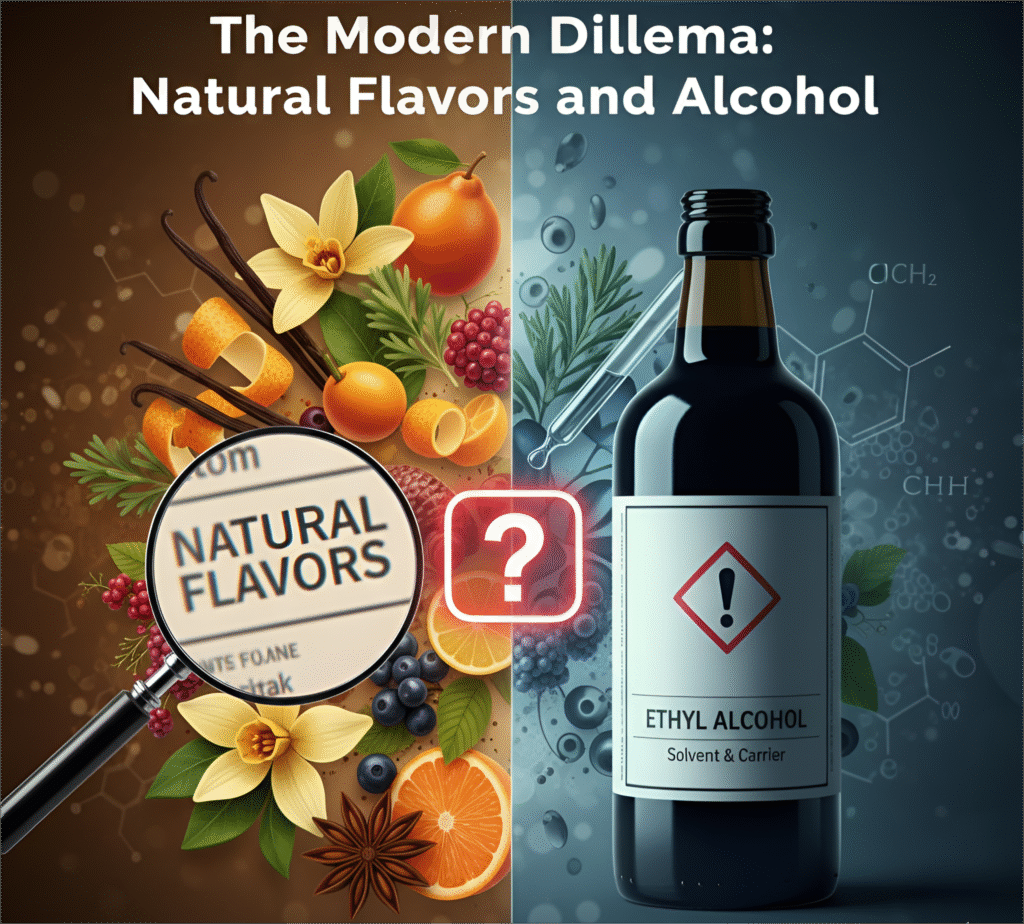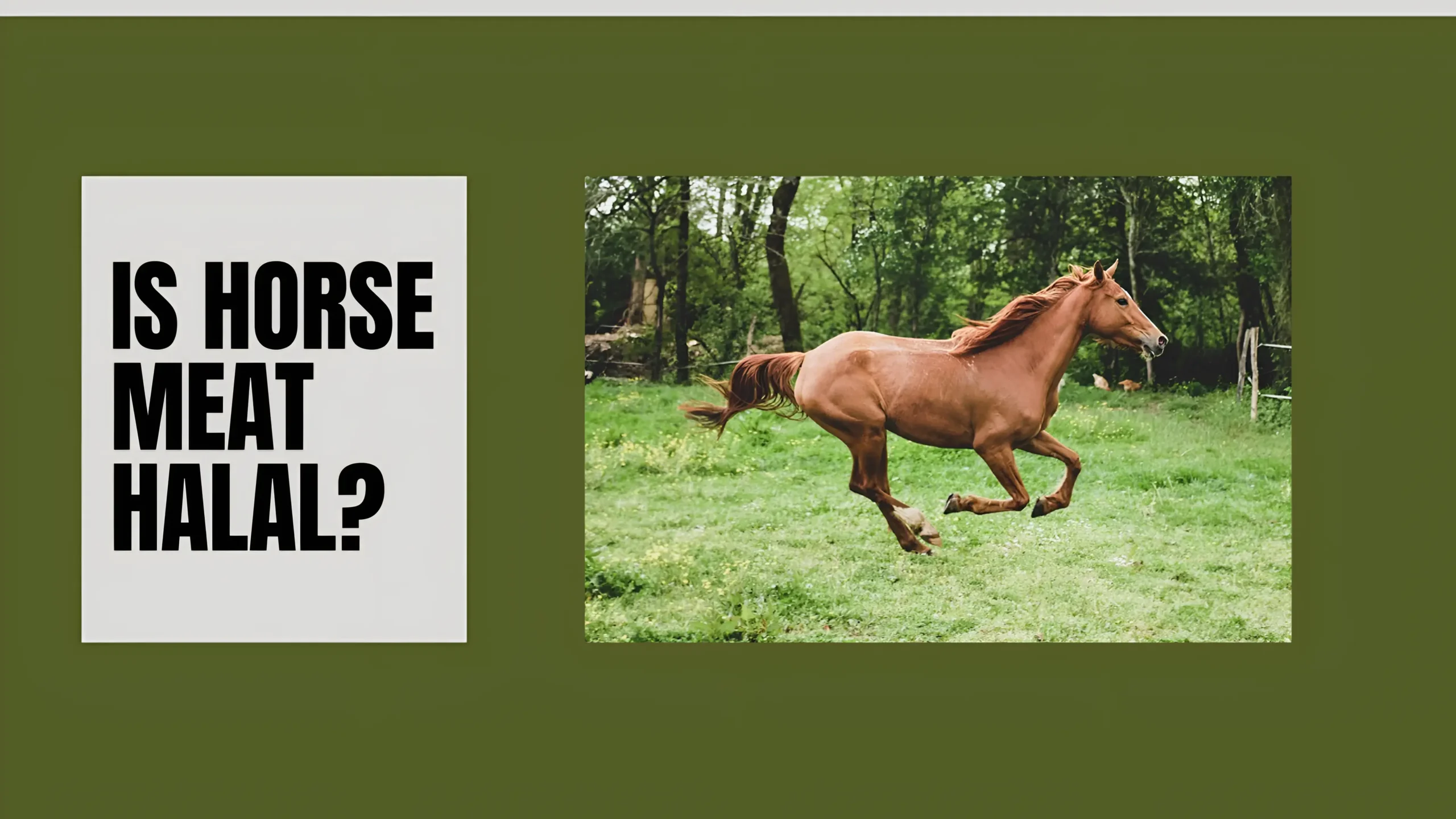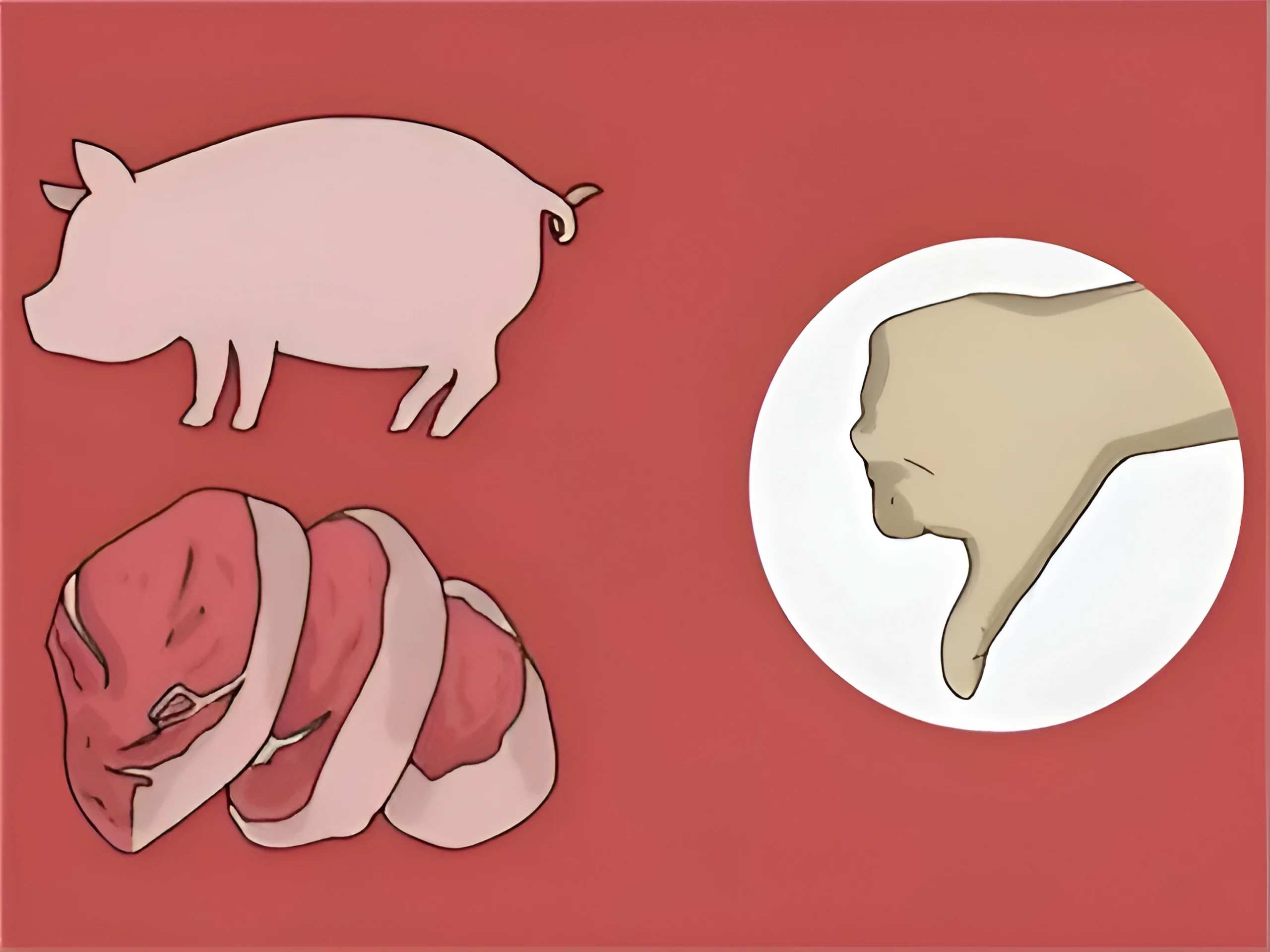Are Skittles Halal? Checking for Gelatin in Your Favorite Candy

.
Are Skittles Halal? A Journey into the Rainbow of Ingredients
Within the rainbow-colored world of sweets, there are few candies more iconic than Skittles. With their hard shell, soft center, and now-legendary “Taste the Rainbow” slogan, they’ve ended up in the hearts and shopping baskets of millions everywhere. For the discerning Muslim shopper, however, the joy of any consumable product, even a simple candy, is first greeted with a key question: Is it halal?
The answer for Skittles is not a merely a yes or no. It is a complex problem that has evolved over the years, varies significantly by geography, and goes deeply into the intricate science of food manufacture and the philosophical basis of Islamic law. To truly know the halal status of Skittles is to embark on a journey that explores Islamic food laws, scrutinizes the composition of the candy’s ingredients, learns its history of production, and takes the global perspective of food production. This article is an effort to be a thorough, thorough guide for the ethical consumer.
Understanding the Principles of Halal Food
Before we can move on to analyze the components of Skittles, we must have a good understanding of what “halal” is. The Arabic word halal (حلال) has been translated as “permissible” or “lawful” in English. In Islamic context, it means something that is lawful to use or consume according to Islamic law, or Shari’ah. Its antonym is haram (حرام), which means “forbidden” or “unlawful.”
The main sources of determining what is halal or haram are the Qur’an (Islam’s holy book) and the Sunnah (the words, actions, and approvals of the Prophet Muhammad, peace be upon him). Islamic scholars have derived a number of principles for dietary laws from these sources. The main classifications of haram food and beverages are:
-
- Pig and its by-products: Most well-known prohibition. Anything that is derived from a pig, including its meat, fat (lard), bones (gelatin), and enzymes, is strictly haram.
-
- Carrion: Flesh of an animal that died a natural death, or due to illness, or was killed by another animal.
-
- Blood: Fresh blood flowing from an animal is forbidden.
-
- Not killed on Islamic lines: In order to render the meat of an acceptable animal (like a cow, sheep, or chicken) halal, it must be killed in a specific manner that is referred to as Dhabiha. That involves a swift cut to the neck to cut off the jugular veins, carotid arteries, and windpipe, but invoking the name of God (Allah).
-
- Intoxicants: Any intoxicating substance, primarily alcohol, is haram to drink. This ban also applies to food items that include alcohol as an important ingredient.
There is a third category that exists in between the simple categories of halal and haram, a category that is very important and termed mushbooh (مشبوه), or “doubtful” or “questionable.” They are those where the origin or the way of processing is unknown, so it is hard to ascertain their status. Islamic practice warns believers away from the use of mushbooh products for fear of undermining their faith and righteousness. It is in the gray area of mushbooh ingredients that most modern processed foods, including Skittles, usually fall.
The Skittles Ingredient List: A Microscopic Examination
The key to determining if a processed food is halal or not is close examination of the ingredients of its list. A typical packet of United States or United Kingdom Original Skittles has the following ingredients, or their variations:
Sugar, Corn Syrup, Hydrogenated Palm Kernel Oil, Citric Acid, Tapioca Dextrin, Modified Corn Starch, Natural and Artificial Flavors, Colors (including Red 40 Lake, Titanium Dioxide, Yellow 6 Lake, Yellow 5 Lake, Blue 2 Lake, Blue 1 Lake, Yellow 5, Red 40, Yellow 6, Blue 1), Sodium Citrate, Carnauba Wax.
We will consider the most applicable of these ingredients in the context of halal.
Sugar, Corn Syrup, and Starches
These are the main constituents of Skittles. The sugar comes from sugar cane or beets, and corn syrup and starch come from corn. All three are plant matter and in themselves halal. A minor, and now essentially a historical, problem some had was that “bone char” (combusted animal bones) is applied in the process of bleaching cane sugar. Even though the bone char itself is not actually in the final product, most of the ethical consumers did not want to go near it. Today, all of the major manufacturers like Mars Wrigley (owner of Skittles) use other methods like granular carbon filters, and thus this issue became moot for them.
Hydrogenated Palm Kernel Oil
This is a vegetable fat derived from the palm tree. Being an oil of vegetable origin, it is purely halal and there is no problem.
Citric Acid, Sodium Citrate
These are food additives widely employed for flavoring (sourness) and as a food preservative. They are produced commercially through microbial fermentation of sugar. They are halal by all Islamic juristic councils.
Tapioca Dextrin, Carnauba Wax
Tapioca Dextrin is a starch derived from the cassava plant, and Carnauba Wax is a leaf wax from the Brazilian palm. Both of these are plant-derived and used as glazes to give Skittles their shine. Both are completely halal.
We now turn to the more complex, mushbooh ingredients that have been a source of controversy in the past.
The Ghost of Ingredients Past: The Gelatin Controversy
For many years, the primary explanation for why Skittles were widely held to be haram by Muslims was the existence of gelatin. Gelatin is a protein derived from the collagen in animal skin, bones, and connective tissue. It’s used as a gelling agent to give candies like Skittles their distinctive chewy texture.
Whether gelatin is halal depends exclusively on its origin:
-
- Pork-derived Gelatin: Definitely haram.
-
- Beef-based Gelatin: Halal only if the cow was slaughtered according to the Dhabiha method. Gelatin from a cow not slaughtered under the Dhabiha method is haram.
-
- Fish-based Gelatin: Halal, as a whole.
-
- Plant Gelling Agents: Agar-agar, pectin, and modified corn starch are all vegetables and halal.
Until recently, the gelatin found in North American and European Skittles was pork-based. In the absence of pork, its origin was not stated, so it was at best mushbooh and by default haram to wary consumers.
This status quo, however, has entirely changed. Somewhere during about 2010, Mars Wrigley overhauled the Skittles recipe for the US and UK markets by removing gelatin completely. They replaced it with starches sourced from plants to provide the same chewy feel. It was a landmark change, having the product become vegetarian-friendly and opening the door for halal consideration. Regular Skittles found in Western mainstream markets like the USA, Canada, and the UK are now gelatin-free.
Key Note: While the main product range is gelatin-free, consumers need to watch out. Specials or offshoot ranges (e.g., Skittles Gummies) may employ different recipes and thus contain gelatin. Always read the ingredient list on the actual product you purchase.
The Coloring Issue: Carmine and Shellac
Having ruled out gelatin, focus then shifted to other ingredients, particularly coloring and glazing agents.
Carmine (E120)
Carmine is a red food coloring that was previously used in some forms of Skittles to produce red and pink colors. The complaint with carmine is that the color is derived from the cochineal insect. The color is obtained by grinding into a powder the dried bodies of these female insects.
Islam’s legality of entomophagy is a matter of scholarly discussion. The Qur’an and Sunnah affirmatively embrace the locust, but there is disagreement among scholars for other insects.
-
- Opinion 1 (Haram): The Hanafi school and most scholars declare the consumption of other insects (apart from locusts) to be haram. Carmine, therefore, a byproduct of insect grindings, would be haram.
-
- Opinion 2 (Halal): Minority of scholars, such as Maliki scholars, permit consumption of insects provided they are properly prepared. Some modern scholars more recently state that the process of extracting the dye from the insect is in itself a chemical change istihala. Istihala is Islamic jurisprudence in which a substance changes its form and nature so completely that it is no longer referred to as the original substance. A classic example is grapes (halal) fermenting and producing wine (haram) and wine being fermented and producing vinegar (halal). Individuals applying this reasoning for carmine make it halal.
Due to this important juristic controversy, carmine is an old mushbooh ingredient. However, again like the situation with gelatin, this is not as big of a problem for modern Skittles. Skittles available in the US and UK today do not contain carmine. They have dropped natural dyes like Red 40 (Allura Red), which are petroleum-based and halal.
Shellac (E904 / Confectioner’s Glaze)
Shellac is a resin secreted by the female lac bug from trees in India and Thailand. It is stripped from the bark and refined to be used as a food-grade glaze. It gives Skittles and other sweets their hard, shiny coat.
The shellac controversy is similar to that of carmine in that it is an insect-derived product. However, the majority of academic opinion leans strongly toward the halal nature of shellac. The reasoning is twofold:
-
- Shellac is a secretion not an insect. It is analogous to honey, which is plant nectar processed and regurgitated by a bee, and is named in the Qur’an as a blessed food.
-
- The shellac is filtered during the process of purification to eliminate any part of the insect and other impurities, pushing the final product even further away from its source.
Owing to these reasons, shellac is generally considered acceptable to be consumed by most halal certifying bodies and Islamic scholars. Although some very conservative people may still avoid it, it is not considered a hindrance to a product to be declared halal.
The Modern Dilemma: Natural Flavors and Spirits

With the largest hurdles of gelatin and carmine all but eliminated in Western markets, the final sector to be open to challenge by the informed Muslim consumer is the catch-all category: “Natural and Artificial Flavors.”
This is probably the most significant mushbooh issue of modern food production. Food corporations are not required to indicate on their labels exactly what is in their flavorings. A single “natural flavor” can be a complex mixture of two dozen or more ingredients. The primary halal issue would be the use of alcohol as a solvent or carrier for the flavor chemicals.
Most flavorings are dissolved away or chemically created and suspended in a carrier for stabilization and ease of addition to the end product. Ethyl alcohol is a highly effective and common solvent for this purpose. The amount of alcohol in the end product is typically infinitesimal (often less than 0.1%), as most of it is evaporated during manufacture.
The use of alcohol here leads to another path of scholarly contention:
-
- Strictest View: Any quantities of alcohol, regardless of origin or application, render a product haram. Those who hold to this view would not use any product whose flavorings have utilized alcohol as a solvent.
-
- Pragmatic Approach: The most famous scholars and certifying agencies draw a line of demarcation between alcohol as an intoxicant and alcohol used for industrial purposes in trace amounts. They argue that if the alcohol is not taken from grapes or dates (which have prohibitions), is only used as a facilitator in processing, and is not present in intoxicating amounts in the final product, then it does not render the food haram. This is the general approach most global halal certification bodies adopt.
Mars Wrigley, like it is typical with big companies, generally gives a generic, non-committal response when asked about this. Their official statements typically assert that any alcohol involved is in trace amounts as a flavor carrier and they cannot certify a product halal unless it has a clear halal certification.
This leaves the decision up to the consumer, based on which academic perspective they align with.
The Verdict by Region: A Global Skittles Tour
Skittles’ halal legality is not uniform everywhere; it mainly depends on where you are located geographically.
United States & Canada
Skittles are carmine-free and gelatin-free. Vegetarians can eat them. The major concern is the vagueness of “natural flavors” and no official halal certification.
-
- Conclusion: For Muslims who are comfortable with the majority of scholars’ opinion about trace alcohol in flavors and do not desire official certification, US/Canadian Skittles are typically okay to consume. For others who follow the most stringent opinion or only consume certified varieties, they would be mushbooh and should be avoided.
United Kingdom & Europe
The situation is not much different for North America. Skittles have no gelatin and are vegetarian friendly. The ingredients are mostly halal-compatible on paper but share the same doubt as to flavors and no certification.
-
- Conclusion: The same choice as in the US and Canada. They are likely fine for most but still questionable for the most traditional.
Australia & New Zealand
The formula here also employs the gelatin-free model. Always read the label to see if there are any new developments or special editions, but the mass market product is generally free from obviously haram ingredients.
-
- Conclusion: As in the UK/US, they are generally consumed by Muslims, but without the assurance of a halal logo.
**Muslim-Majority Countries (Middle East, Malaysia, Indonesia, etc.)
It is here that the image is clearer. For Muslim-majority markets, Mars Wrigley will locally produce Skittles or specifically for that market with emphasis on halal certification. Skittles sold in countries like Malaysia, Indonesia, and the UAE are usually halal certified by a recognized local agency (e.g., JAKIM in Malaysia).
-
- Conclusion: If you buy a package of Skittles with a legitimate halal stamp from an authorized certification body, it is 100% halal and free to consume with no doubt. The certifier has visited the entire supply chain, from taste procurement, to guarantee total compliance to Shari’ah.
The Gold Standard: The Significance of Halal Certification
The above discussion illustrates why third-party halal certification is the gold standard for Muslims. Having a halal logo on a package reassures the mind and does away with any doubt. It signifies that:
-
- A competent Islamic authority has inspected the factory and production process.
-
- All ingredients, including hidden ingredients and processing aids, have been verified to be from halal sources.
-
- Precautions are also taken to prevent any cross-contamination with non-halal ingredients.
While Mars Wrigley has gone halal-friendly for Muslim consumers by removing gelatin from its products, not to pursue certification in Western markets is likely to be a commercial decision, attached to cost, supply chain sophistication, and marketing priority.
Final Conclusion: So, Can Muslims “Taste the Rainbow”?
We are now able to put all of this together in a last, nuanced verdict.
-
- Historical Progress: Skittles have evolved. Removal of pork/unspecified gelatin from their primary formula in Western countries was a major step that moved the product from being overall considered haram to perhaps being acceptable.
-
- Regional is Key: The most correct answer depends on where you are. If you reside in a country in which Skittles bear the halal certification stamp on the packaging, then the answer is a definite YES, they are halal.
-
- The Western Dilemma: Skittles are not halal certified in the US, UK, Europe, and other such regions. While they do not contain gelatin and carmine, the doubt over “natural flavors” (that use alcohol as a solvent) places them in the mushbooh (doubtful) category.
-
- A Matter of Personal Conviction: The decision for these consumers, then, is a function of personal piety and which scholars one follows.
-
- If you are adopting the perspective that trace amounts of alcohol used as a processing aid are halal, and you can live with the absence of other materially haram ingredients, you should be able to hold Skittles to be halal to eat. This is a very common and legitimate viewpoint adopted by millions of Muslims.
-
- If you adhere to a more austere interpretation disallowing any quantity of alcohol, or if you believe one should only be eating that which is explicitly certified halal lest one be in fault of any uncertainty, then you should avoid Skittles in those places. This also is a valid and respected stance according to the Islamic principle of practicing prudence (wara’).
In the end, the search to know whether or not Skittles are halal is the perfect case study in how hard and heavy it is to be a Muslim consumer in the 21st century. It requires an understanding of Islamic law, dedication to reading ingredients, a food science background, and a personal choice based on educated conviction. Though the rainbow of tastes is enticing, ensuring that it will go along with one’s religion is a responsibility taken by each believer in good faith and caution.
For more like this : Hilalinfohub



Post Comment